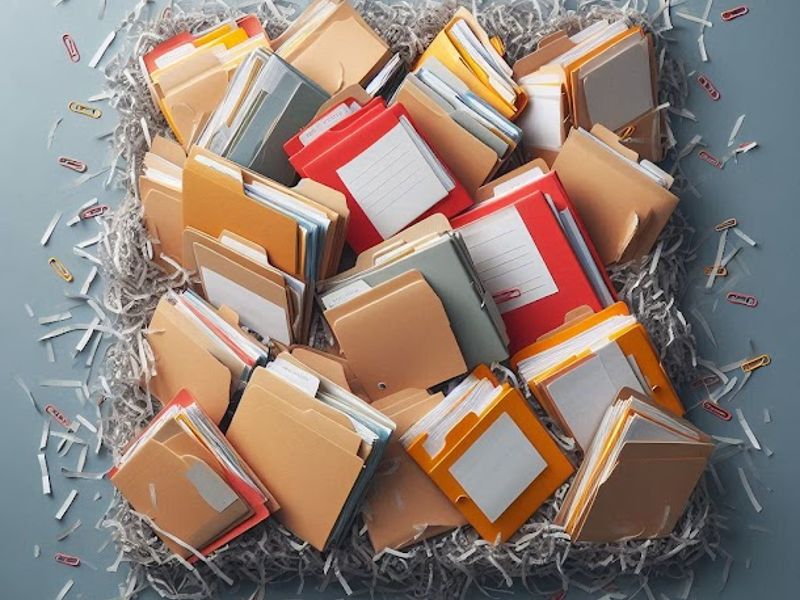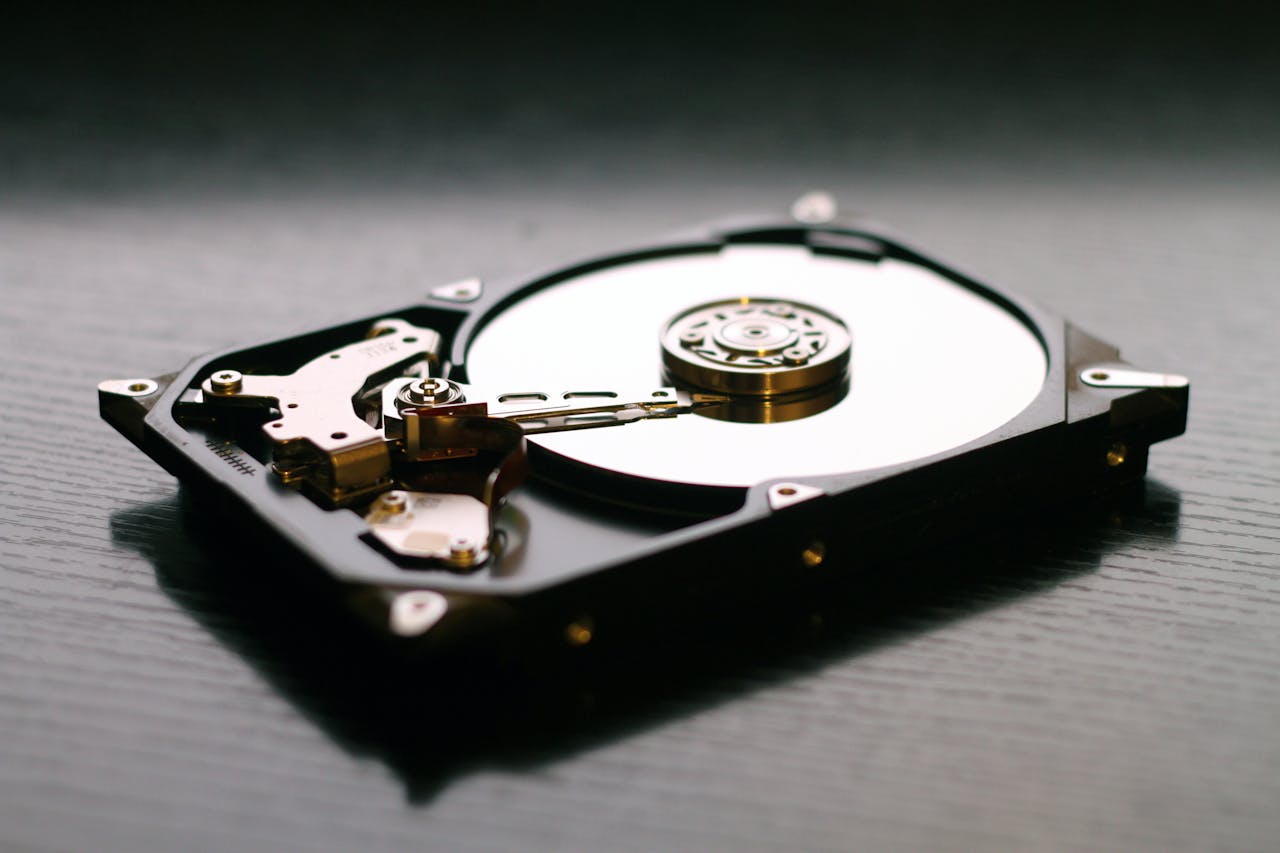Protecting patient privacy is very important in healthcare. HIPAA compliance and proper medical record shredding help keep sensitive information safe. Let’s look at what you need to know about HIPAA-compliant medical record destruction and how it affects your healthcare practice.
Key Points for HIPAA-Compliant Medical Record Shredding
- HIPAA requires medical records to be kept for at least 6 years
- Approved destruction methods include cross-cut shredding and incineration
- Maximum annual HIPAA violation penalty is $1.9 million
- Professional shredding services ensure compliance and reduce liability
- Secure destruction required for both paper and electronic records

Table of Contents
Understanding HIPAA Requirements for Medical Record Retention and Destruction
The Health Insurance Portability and Accountability Act (HIPAA) has strict rules for handling protected health information (PHI). HIPAA says medical records must be kept for at least six years from when they were created or last used, whichever is later. Some states have laws requiring longer storage times, which override HIPAA rules.

When destroying medical records, HIPAA says all PHI must be made “unreadable, indecipherable, and otherwise unable to be reconstructed.” This applies to both paper and electronic records. Good records management is important to follow these rules.
Remember, the six-year storage time is the minimum. Some documents might need to be kept longer, depending on the type of record and state laws. For example, children’s medical records often need to be kept until the patient becomes an adult, plus a few more years.
The Risks of Improper Medical Record Disposal
Not disposing of medical records properly can lead to big problems. HIPAA violations can result in fines from $100 to $50,000 per violation, with a yearly limit of $1.9 million for repeated violations. Healthcare providers might also face damage to their reputation and possible criminal charges for knowingly sharing PHI.
Good risk management helps prevent these costly mistakes. By having strong policies for destroying documents, healthcare organizations can reduce the risk of data breaches and follow HIPAA rules.
Improper disposal can also hurt patient trust. Patients need to trust their healthcare providers, and a privacy breach can seriously damage this relationship. This loss of trust can lead to fewer patients and bad reviews, which can hurt the healthcare organization’s business.
HIPAA-Compliant Medical Record Shredding Methods
To follow HIPAA rules, healthcare providers must use safe methods to destroy medical records. These methods include:
- Cross-cut shredding for paper records
- Pulping or pulverizing paper documents
- Burning both paper and electronic media
- Degaussing magnetic storage devices
- Physically destroying hard drives and other electronic storage devices
Professional shredding services offer safe and efficient ways for healthcare organizations to get rid of sensitive documents while following HIPAA rules.
Not all shredding methods are equal. Strip-cut shredders might not meet HIPAA standards because the strips can sometimes be put back together. Cross-cut or micro-cut shredders are better because they turn documents into tiny pieces that can’t be reassembled.
FileVault’s HIPAA-Compliant Shredding Services
FileVault offers complete HIPAA-compliant shredding services for healthcare providers. Our services include:
On-site and off-site shredding options
Secure document collection using locked containers
Cross-cut shredding technology for maximum security
Certificate of Destruction for each shredding session
Environmentally friendly recycling of shredded materials
Our team is trained in HIPAA compliance and understands how important it is to handle protected health information carefully. We use the best equipment and follow strict procedures to make sure sensitive documents are completely destroyed.
The Shredding Process: From Collection to Destruction
FileVault’s shredding process keeps your medical records safe from start to finish:
- Secure document collection using locked containers in your facility
- Scheduled pickup by trained, background-checked staff
- Secure transportation in GPS-tracked vehicles
- Cross-cut shredding at our secure facility or at your location
- Issuing a Certificate of Destruction for your records
- Recycling shredded materials to help the environment
This thorough process ensures your medical records are handled carefully and securely, following HIPAA rules throughout the destruction process.
Our chain of custody procedures make sure documents stay secure from the moment they’re put in our locked containers until they’re completely destroyed. This unbroken chain of custody is crucial for following HIPAA rules and gives healthcare providers peace of mind.
Learn more about Offsite Document Shredding here.
Benefits of Professional HIPAA-Compliant Shredding Services
Working with a professional shredding service like FileVault has many advantages:
Ensures HIPAA compliance and reduces legal risks
Saves time and money compared to in-house shredding
Improves security with professional equipment and trained staff
Offers convenient scheduling options to fit your needs
Helps the environment through responsible recycling practices
By choosing professional document storage and shredding services, healthcare providers can focus on patient care while experts handle the complicated task of HIPAA-compliant document destruction.
Professional services can also adjust to your changing needs as your healthcare organization grows or as rules change. This flexibility helps you stay compliant without having to buy expensive shredding equipment.
Implementing a HIPAA-Compliant Document Destruction Policy
To stay HIPAA compliant, healthcare organizations should have a complete document destruction policy. Key parts of this policy should include:
Clear guidelines for identifying documents with PHI
Procedures for secure document storage and handling
Regular schedules for document destruction
Training programs for staff on HIPAA compliance and document handling
Documentation of all destruction activities
Regular checks of your records management practices can help find areas to improve and ensure ongoing compliance with HIPAA rules.
It’s important to review and update your document destruction policy regularly to account for changes in rules or technology. This proactive approach helps maintain compliance and protects your organization from potential violations.
Beyond Paper: Handling Electronic PHI and Medical Records
In today’s digital world, healthcare providers must also think about safely disposing of electronic PHI. This includes:
- Properly destroying hard drives and other storage devices
- Securely wiping data from reusable devices
- Destroying CDs, DVDs, and other optical media
- Safely disposing of mobile devices and tablets

FileVault offers comprehensive records management services that include secure destruction of both paper and electronic media, ensuring complete protection of your patients’ sensitive information.
Just deleting files or formatting a hard drive isn’t enough for HIPAA compliance. Special software or physical destruction methods are necessary to make sure electronic PHI can’t be recovered.
Partnering with FileVault for HIPAA Compliance
HIPAA compliance and proper medical record shredding are very important for protecting patient privacy in healthcare. By working with FileVault for your document destruction needs, you can make sure your organization follows all HIPAA rules while benefiting from efficient, cost-effective, and environmentally friendly shredding services.
Don’t risk your patients’ sensitive information. Contact FileVault today to learn more about our HIPAA-compliant shredding services and take the first step towards better data security and compliance.
